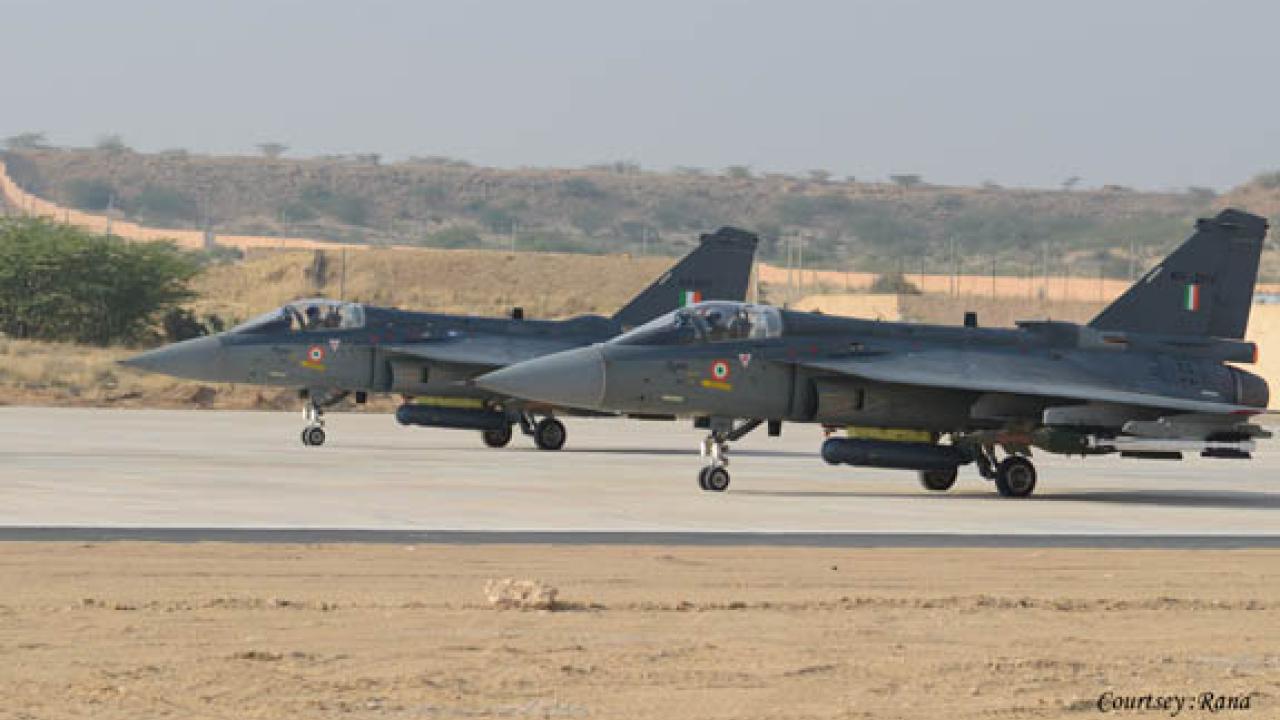India offers LCA Tejas for RAAF trainer requirement

RAAF had floated a tender in June 2020 for a new advanced jet trainer to replace its age-old BAE Systems Hawk 127 LIFT aircraft.
“We have responded to a request for information (RFI) from Australian DoD for the Air 6002 Phase 1 requirement , which was issued on June 1, 2020, by offering our LCA as LIFT configuration,” says an HAL official.
RAAF is yet to fully define the requirements for Air 6002 Phase 1 Future LIFT aircraft.
According to the RFI, the aircraft performance and aircraft mission systems that bridge between the pilot training system and fast jet conversion courses will be critical requirements. The Future Lead-in Fighter Training System will be expected to remain relevant to its role in training fast jet aircrew and supporting joint force training, to be adaptable to those needs as they evolve, to be affordable, and to be safe out to an indicative timeframe of 2050.
“The Tejas should form the lynchpin of India’s export strategy. If strategised correctly in terms of cost, timely delivery and product support, the aircraft can become an excellent export prospect, though the global fighter market is ruthlessly competitive and is exceptionally difficult for new entrants. This requires an integrated effort that combines foreign policy, military diplomacy, and aggressive defence marketing and cooperation. Since the Mk1/1A incorporates critical equipment that are of foreign origin (for example, the GE engine) it makes eminent sense to create risk-sharing partnerships with these companies to ensure successful exports. Effectively, this 4/4.5-generation aircraft should be pitched as the best value for money to a large number of countries in Asia, Africa, Europe and Latin America. While the Mk 1 and 1A become the most affordable high-performance aircraft and best value for money, the trainer by itself has immense potential. The Tejas trainer is an ideal aircraft for the LIFT role for all air forces,” noted Air Marshal M Matheswaran (retd) and former Deputy Chief of India’s Integrated Defence Staff.
HAL has reasons to be hopeful as it secured an approximately US$7 Billion deal to manufacture 83 LCA Tejas jets for the Indian Air Force (IAF). Since then, HAL has also been confident about the indigenous fighter/trainer’s prospects on the export market.
According to the HAL official, the production rate for this increased requirement by IAF is being augmented by HAL from 8 to 16 aircraft every year through the creation of a state-of-the-art new facility in Bengaluru.
“The LCA has got foreign countries interested and we are confident of one such contract soon,” said Chairman and Managing Director R. Madhavan.
HAL is also expected to respond to a Request for Proposal (RfP) from the Royal Malaysian Air Force (RMAF). The Malaysian Air Force has sent out a global request for low-cost light fighter aircraft.
HAL has also offered the LCA (Naval Twin seat Trainer) to US Navy in July 2020.
LCA-Tejas Mark 2, the second generation fighter prototypes are underway in association with the DRDO’s Aeronautical Development Agency (ADA). “We expect the first prototype to be ready by next year-end. It will be lengthier and is under design stage with structural and systems plans in place. It will take one year for the ground runs and the then flight trails will start to be completed by 2026-27,” the HAL chief said.
Stay up to date
Subscribe to the free Times Aerospace newsletter and receive the latest content every week. We'll never share your email address.

